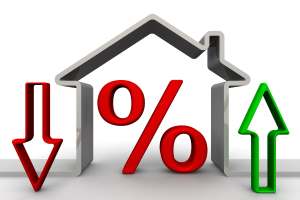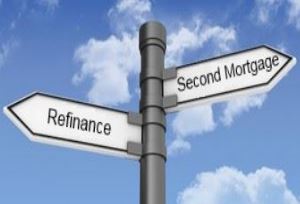
What Is the Interest Rate on a Second Mortgage and How Is It Determined?

One of the many questions I receive when speaking to various clients looking for a second mortgage is what is the average interest rate on a second mortgage or if I am a low income earner with poor credit what kind of interest rate should I expect on a second mortgage.
Before attempting to answer the above question, it is important to note that qualification, approval and interest rate varies greatly depending on whether the loan is arranged through an institutional lender such as the bank and trust companies verses private lenders. Another important aspect is the loan to value ratio as well as the location and type of the property. In this document we will discuss both the institutional lenders and private lenders and what influences the interest rate
Second Mortgages From Institutional Lenders
When it comes to home equity loans, the institutional lenders have very strict policies regarding qualification. Their approval process not only takes into account credit score but also debt ratio. As of the writing of this document, most institutional lenders cannot look at Total Debt Service ratio (TDS) that is more than 50%. That means the institutional lenders only seek individuals with better credit score and not too much debt. The interest rate for home equity loans from institutional lenders starts at around 5.99% and it goes up from there. With institutional lender, the home equity loan is capped at 80% Loan to Value (LTV)
Second Mortgages From Private Lenders
The borrowers that require funds from private lenders generally, although not always the case, have either very poor credit score, high TDS, need to go over the 80% LTV, or may need the funds very quickly. Regardless of what the situation may be when looking at private lenders, it is important to look at both interest rates and fees.
Although each private lender has his or her own unique lending policies and guidelines, the interest rate offered by private lenders is determined by looking at the following:
- The applicant
- The property
- Loan to value ratio (LTV)
The Applicant – Although some private lenders may not base their approval on credit and TDS, they will certainly take these in to consideration when setting interest rates. The clients with very low credit score and high TDS receive higher interest rate than clients who have lower TDS and better credit.
The Property – The property is very critical for private lenders who are also called equity lenders. Private lenders, especially private second mortgage lenders carry higher risk than the 1st mortgage holder as they are on the second position on the title. In case of any default, the property has to be sold in a timely fashion and at the right price so that the lenders can recover their funds in full. Thus, the location, the demand for the property as well as the area and the type of the property is critical. Interest rate for properties in locations where home do not sell as fast, or demand is not as high may be higher than area with high demand. The type and condition of the home is just as important, for instance single family homes can sell faster than multi-family homes, etc. Home in good condition is preferred to a home in need of much renovation.
Loan to Value Ratio (LTV) – The loan to value is another important factor for the lender who’s only recourse in case of default is to sell the property and hope there is enough left over after all expenses have been deducted. Thus loans at very high LTV will have higher interest rate than loan with lower LTV. For second mortgages with LTV as high as 90 or 95%, the lender will increase the interest rate to compensate for the additional risk the lender is taking.
Thus the question of what is the average interest rate on a second mortgage cannot be accurately answered since not only each private lender has unique lending guidelines but each case is also unique as discussed earlier. The private lender has to take into consideration, the applicant, the property and the LTV in order to determine pricing. Also since private lenders charge fees for originating the loan, it is not sufficient to just look at rates. For instance one private second lender may offer 7% interest rate for a property, whereas another private lender may choose to increase the fees by 2% and offer interest rate of only 5% to dazzle the borrower. Therefore, when looking at the cost of borrowing, you need to check both the interest rate and the fees.



